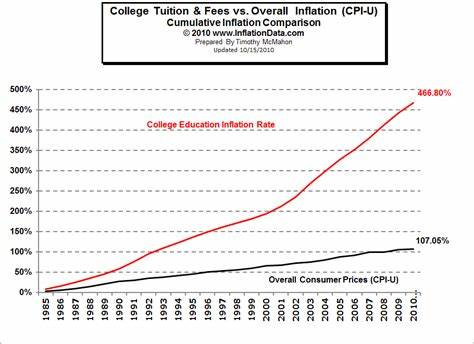World's Longest Running Scam: The Academy
Sometimes, I feel as though my profession is a giant scam. I don't mean that we're not doing anything of value. I mean that what people think we're doing, which explains why they pay us so much, is not what we're actually doing. And when I reflect on that, sometimes, I wonder how long it will take for the world to catch on, and then stop giving us tons of money, at which point most of us will have to find real jobs. That might be good for society, but I hope it doesn't happen before I've retired.
What they think we're doing
I gather that what most people think the academy is doing is mainly
(i) teaching students valuable skills and information that they need in order to get by in life, to do their jobs, and/or to be good citizens; plus, to a lesser extent,
(ii) doing research that produces new knowledge of value to society.
This sounds pretty good. And this impression is supported by academics and other intellectuals. Since society's intellectuals generally like the academy, we use our intellectual skills to come up with clever, smart-sounding propaganda about how awesome education is. Like this slogan: "Think education is expensive? Try ignorance." This causes most of society to think that education must be really great, since the experts all seem to think so.
*Exceptions: Jason Brennan's Cracks in the Ivory Tower; Bryan Caplan's The Case Against Education. These academics bite the hand that feeds them.
We generally decide to overlook evidence against our preferred narrative. Since the only people likely to be able to marshal that evidence are other academics, who share the same bias, we're usually safe.
Aside: Here's something we like to do in philosophy: we cite statistics about the earnings of philosophy majors, post-graduation -- which turn out to be pretty good, compared to most majors. We then either state, or leave it as implied, that philosophy improves your earnings potential. Ironically, philosophy should teach you to be critical of that sort of reasoning. (Ever hear about a little distinction between "treatment effects" and "selection effects"? I guess maybe that's more of a sciencey topic, so philosophers wouldn't get it.)
Anyway, I think the above (functions (i) and (ii)) explain part of why society funnels so much money to academia.
Students and their parents pay a lot of money, of course, because they think, correctly, that a college degree increases your earnings potential. They also incorrectly think this works by college teaching you important skills.
Even more clearly, the government funnels money to higher education, with the support of the public, because they believe the academy is doing lots of (i) and (ii). When they finally figure out that that's not true, what will happen to the academy?
What we're actually doing
Here's what we're really doing.
a. Administering a really long, really expensive IQ and personality test. The people who graduate from a "good" school thereby display their intelligence, perseverence, and willingness to follow tedious instructions from others without complaint -- all valuable traits in the workplace. For the most part, we don't give people these traits; we simply screen out people who lack them.
b. Producing prestige. Harvard doesn't do a better job of teaching people than other schools; it just has more prestige. That's why people are willing to pay them more than other schools. The economic function of academic research is to produce prestige for the researcher's school -- that is "the economic function" in the sense that that explains why there is money available to pay for it.
c. Indoctrinating students. Many academics are utterly shameless about injecting their personal ideology anywhere they can. Many of these, by the way, would also insist, with no sense of irony, that they support critical thinking, openness to competing points of view, etc. It's just that such openness of course only applies to legitimate, serious ideas -- and they simply can't perceive anything that challenges the main points of their ideology as a legitimate, serious idea.
d. Attacking rationality. Some academics (I don't know how many -- presumably not many among philosophers, but the postmodernists) actively attempt to undermine rational thought. They will do such things as attacking rationality, attacking objectivity, and simply modeling non-rational discourse. This is the opposite of education.
e. Playing intellectual games with each other. This is most of what our research is. It's not literally a game, but a game is the best metaphor: a mostly harmless diversion, whose main purpose is to entertain those participating. Like a bunch of eggheads sitting around playing a giant, collective chess game (only there is no defined endpoint). The people who are good at it attract attention and admiration from the other players. The most exciting players make surprising moves that turn out to be defensible -- you know, like a dramatic queen sacrifice. And that's how they build up the currency of the academic world, prestige. If you accumulate enough of it, other teams may try to hire you, with a big salary bonus.
Most of the research is written solely for the other researchers and will never be read by and never make any difference to anyone else. (In fact, most will barely be read even by other researchers.) If you tried to describe it to someone outside the game, even someone with lots of intellectual interests, they would generally find it pointless. Like, someone taking a year off of teaching so he can study the attitudes of 16th-century Spaniards toward plants on the Iberian Peninsula.
Now, of course there is much research that is really interesting and important. E.g., some people are trying to cure cancer, or . . . reveal the injustices in the American legal system. But I think that is a small minority of all research.
When will this house of cards collapse?
This is a great scam we've managed to pull on the rest of society, but I don't know how long we can keep it up. Surely the secret is going to get out, and the country is going to stop pouring money into our industry? On the other hand, it's been going on for a long time, so maybe it's stable for the next few centuries?
(Aside: Here is a story about how small colleges are closing down, and maybe 1/4 will close in the next 20 years: https://www.cbsnews.com/video/expert-predicts-25-of-colleges-will-fail-in-the-next-20-years/
I can't vouch for the story, though; it may just be typical media alarmism.)
I guess people think that they have to pay me a bunch of money because I have arcane knowledge that I am only willing to impart if they give me a bunch of money and job security and lots of time to sit around reading and writing. I'm just waiting for society to figure out that I don't have any such knowledge or skills. Everything I know that I might teach in a class is publicly available knowledge. All or most of it you can get for free if you have an internet connection or a library card.
I guess maybe there is a little educational bonus from being able to talk to me in person ... but in truth, very few students ever actually avail themselves of that opportunity. They don't actually want the benefit that's costing them all this extra money.
Now, of course we know why students are attending college rather than just learning on the internet. They want the prestige, not the knowledge. They want to signal intelligence, perseverence, and conformity. So perhaps I have no cause for concern. It doesn't matter that I don't actually have any secret knowledge.
But I still worry that some tech entrepreneur is going to figure out how to produce the same product (once they recognize what the product actually is) at much lower cost -- like, orders of magnitude lower. Maybe there will be a lengthy course of study you can complete, doing work that is entirely computer graded so that no professors have to be hired, and the company will just certify that you completed it with some level of intellectual performance. I don't understand why something like this hasn't replaced almost all college education.
Inviting the collapse
I don't know whether or when universities will go the way of newspapers. But if it is going to happen, I think it will be helped along by practices (c) and (d) above, indoctrination and attacking rationality. I suspect that we’re shooting ourselves in the foot with this.
I don’t think the indoctrination works very well. I think most students just learn what the professor wants to hear, then forget it as soon as the class is over. But I think it does succeed in pissing off the segment of society that disagrees with the ideology. Which, as a matter of fact, is at least half the country. When we lament the anti-intellectual trend in conservatism, we should look at the way intellectuals have been dismissing conservative ideas and shamelessly propagandizing for left-wing ideology. Of course conservatives would become anti-intellectual. How long will it be before Republicans introduce legislation to shut down government support for education?
I suspect that (c) and (d) are also undermining the prestige-generating power of the academy. Because they create the impression that one can succeed academically simply by toeing an ideological line – and one can fail simply by refusing to do so. And that is not what employers are trying to select for. They’re looking for smart, hard-working, persistent people – not mere ideologues. If academics go too far, we’re going to undermine the economic value of college degrees – at which point, we’re through.
Now, those who know me know that I have no problem with advocacy teaching. What I have a problem with is unfair or unreasonable advocacy. I think it’s fine to say, “I think this conservative (/liberal) idea is mistaken. Let me tell you why ...” followed by some logical arguments and evidence. But that should be after you have presented the idea as faithfully as possible, explaining fairly what its proponents would say in its favor. This will normally involve reading texts that advance that idea clearly and strongly. The professor should then try to model careful, reasoned discourse on the topic, weighing the reasons on both sides.
Obviously, it is unacceptable to attempt to intimidate or punish people for believing a controversial idea. Finally, it is of course inappropriate to inject ideological points into a class to which they are not relevant. For instance, a professor should not inject his opinions about the current President, unless the class topic somehow really calls for discussion of that.
It would be great if professors were to acquire a reputation for being fairminded, objective reasoners, people who try to understand your point of view before helping you improve your own understanding. Maybe this would cause the rest of society to keep us around a little longer. Unfortunately, that is far from the way we are actually seen.








